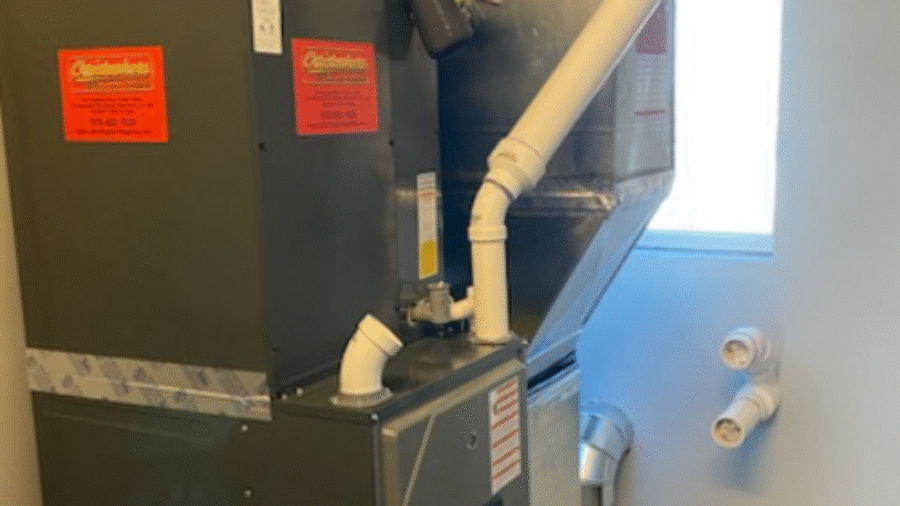Deciding whether to replace your furnace can be challenging, especially when faced with rising heating bills and fluctuating utility costs. Many homeowners wonder if they should stick with minor repairs or take the plunge with a complete furnace replacement. To make an informed decision, it is essential to recognize the warning signs of a failing furnace and consider factors like the type of furnace you have, the average lifespan, and the potential energy efficiency gains.
1. Understand the Age and Efficiency of Your Furnace
The age of your current furnace plays a significant role in determining if a replacement is necessary. On average, gas furnaces have an average lifespan of 15 to 20 years, while electric furnaces might last slightly longer. However, as furnaces age, they tend to lose energy efficiency, causing an increase in heating bills. Even a well-maintained furnace may still fall behind modern standards. Newer models are designed with advanced technology that can help reduce utility bills significantly.
If your furnace is over a decade old, it might be time to evaluate its performance. Look for warning signs such as a yellow or flickering pilot light instead of a steady blue flame, frequent cycling, unusual noises, or visible signs of rust. These could indicate that your system is not running at peak efficiency.
2. Consider Your Furnace Type and Energy Source
When thinking about a replacement, you should consider the type of furnace you currently have. Gas furnaces, electric furnaces, and even heat pumps all have different benefits and drawbacks. Gas furnaces are popular for their ability to heat homes quickly and efficiently. However, they come with potential safety risks, such as carbon monoxide leaks. Warning signs like a yellow pilot light or visible soot around the furnace can signal a problem.
Electric furnaces, on the other hand, are safer in terms of combustion risks but can lead to higher utility bills due to electricity costs. If you live in a region with high electricity prices, the operating costs might outweigh the benefits. Heat pumps, which provide both heating and air conditioning, might be an ideal solution for milder climates.
3. Evaluate Maintenance and Repair Costs
A well-maintained furnace can save you from sudden repair bills and prolong its lifespan. Regularly replacing the furnace filter, checking the flame sensor, and ensuring the unit is clean can help keep it running smoothly. However, if you find yourself scheduling frequent minor repairs or noticing that your heating bills are gradually creeping up, these could be signs that your furnace is losing its efficiency. In such cases, investing in a modern furnace that boasts higher efficiency ratings can help you save money in the long term.
4. Ensure Family Safety and Air Quality
Beyond just heating your home, a healthy furnace ensures that your indoor air quality remains safe. A malfunctioning furnace could pose risks such as carbon monoxide leaks, which are dangerous and potentially life-threatening. Signs of carbon monoxide exposure include dizziness, headaches, and nausea, often mistaken for flu symptoms. Keep your family safe by regularly inspecting the pilot light, which should burn a bright blue. A yellow or wavering flame could indicate incomplete combustion and a potential carbon monoxide issue.
5. Maximize the Benefits of a Furnace Replacement
Opting for a furnace replacement might seem like a significant upfront expense, but it offers numerous long-term benefits. Modern furnaces, whether gas or electric, are designed to maximize energy efficiency and minimize utility costs. Look for models with a high Annual Fuel Utilization Efficiency (AFUE) rating for gas furnaces, or consider investing in a heat pump for both heating and cooling needs.
By recognizing the signs of a failing furnace and understanding the benefits of a replacement, you can ensure your home remains warm, safe, and energy-efficient throughout the winter months.
Ready to Upgrade Your Furnace? Contact Christopher’s Heating and Cooling Today!
If you’re experiencing any of the warning signs mentioned above or just want to explore more energy-efficient heating options, Christopher’s Heating and Cooling is here to help. Our team of experienced technicians can assess your current furnace, recommend the best replacement options, and ensure a smooth, professional installation. Don’t wait until your furnace fails—reach out to us today to schedule an inspection or get a free quote. Stay warm and keep your family safe with Christopher’s Heating and Cooling!

